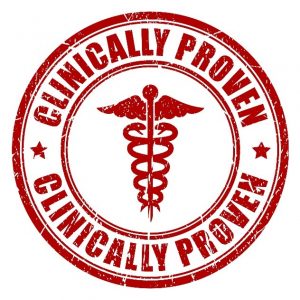Do Omega-3s Make For A Healthy Pregnancy?
Author: Dr. Stephen Chaney
 The role of omega-3s on a healthy pregnancy has been in the news for some time. Claims have been made that omega-3s reduce preterm births, postnatal depression, and improve cognition, IQ, vision, mental focus, language, and behavior in the newborn as they grow.
The role of omega-3s on a healthy pregnancy has been in the news for some time. Claims have been made that omega-3s reduce preterm births, postnatal depression, and improve cognition, IQ, vision, mental focus, language, and behavior in the newborn as they grow.
The problem is that almost all these claims have been called into question by other studies. If you are pregnant or thinking of becoming pregnant, you don’t know what to believe.
- Should you eat more fish?
- Should you take omega-3 supplements?
- Or should you just ignore the claims about omega-3s and a healthy pregnancy?
These are not trivial questions. Let’s consider preterm births as an example. The medical profession has made enormous advances in keeping premature babies alive. However, premature babies are still at higher risk of several health conditions including:
- Visual impairment.
- Developmental Delay.
- Learning difficulties.
Plus, it is expensive to keep premature babies alive. One recent study estimated that increasing omega-3 intake during pregnancy could reduce health care costs by around $6 billion in the United Stated alone.
Unfortunately, it’s not just omega-3s and pregnancy. The same is true for almost all nutritional health claims. One day a study comes out claiming that nutrient “X” cures some disease or has some miraculous benefit. The bloggers and news media hype that study. Suddenly you see that health claim everywhere. It becomes so omnipresent that you are tempted to believe it must be true.
But wait. A few months later another study comes to opposite conclusion. Now the media is telling you that health claim is false. The months come and go, and new studies keep coming out. Some support the health claim. Others refute it.
Pretty soon the nutrition headlines just become “noise”. You don’t know what to believe. If you want the truth, “Who ya gonna call?”
Who Ya Gonna Call?
 It’s not Ghostbusters. It not Dr. Strangelove’s health blog. It’s a group called the Cochrane Collaboration.
It’s not Ghostbusters. It not Dr. Strangelove’s health blog. It’s a group called the Cochrane Collaboration.
The Cochrane Collaboration consists of 30,000 volunteer scientific experts from across the globe whose sole mission is to analyze the scientific literature and publish reviews of health claims so that health professionals, patients, and policy makers can make evidence-based choices about health interventions.
The Cochrane Collaboration reviews all the relevant studies on a topic, exclude those that are biased or weak, and make their recommendations based on only the strongest studies. Their reviews are considered the gold standard of evidence-based medicine.
If you are of a certain age, you may remember that TV commercial “When EF Hutton talks, people listen.” It is the same with the Cochrane Collaboration. When they talk, health professionals listen.
This week we will examine the Cochrane Collaboration’s review titled “Omega-3 Fatty Acid Addition During Pregnancy”.
How Was The Study Done?
 For this analysis the Cochrane Collaboration reviewed 70 randomized controlled trials which compared the effect of added omega-3s on pregnancy outcomes with either a placebo or a diet no added omega-3s. These trials included almost 19,927 pregnant women.
For this analysis the Cochrane Collaboration reviewed 70 randomized controlled trials which compared the effect of added omega-3s on pregnancy outcomes with either a placebo or a diet no added omega-3s. These trials included almost 19,927 pregnant women.
In one sense, Cochrane reviews are what is called a “meta-analysis”, in which data from numerous studies are grouped together so that a statistically significant conclusion can be reached. However, Cochrane Collaboration reviews differ from most meta-analyses found in the scientific literature in a very significant way.
Many published meta-analyses simply report “statistically significant” conclusions. However, statistics can be misleading. As Mark Twain said: “There are lies. There are damn lies. And then there are statistics”.
The problem is that the authors of most meta-analyses group studies together without considering the quality of studies included in their analysis. This creates a “Garbage In – Garbage Out” effect. If the quality of individual studies is low, the quality of the meta-analysis will also be low. Simply put, the conclusions from some published meta-analyses are not worth the paper they are written on.
The Cochrane Collaboration also reports statistically significant conclusions from their meta-analyses. However, they also carefully consider the quality of each individual study in their analysis. They look at possible sources of bias. They look at the design and size of the studies. Finally, they ask whether the conclusions are consistent from one study to the next. They clearly define the quality of evidence that backs up each of their conclusions as follows:
- High-quality evidence. Further research is unlikely to change their conclusion. This is generally reserved for conclusions backed by multiple high-quality studies that have all come to the same conclusion. These are the recommendations that are most often adopted into medical practice.
- Moderate-quality evidence. This conclusion is likely to be true, but further research could have an impact on it.
- Low-quality evidence. Further research is needed and could alter the conclusion. They are not judging whether the conclusion is true or false. They are simply saying more research is needed to reach a definite conclusion.
Omega-3s Reduce Preterm Births
 Here are the conclusions that the Cochrane Collaboration said were supported by high-quality evidence:
Here are the conclusions that the Cochrane Collaboration said were supported by high-quality evidence:
- Omega-3s reduce the risk of preterm births.
- Omega-3s reduce the risk of low-birth-weight infants.
The authors concluded: “Omega-3 supplementation during pregnancy is an effective strategy for reducing the risk of preterm birth…More studies comparing omega-3s and placebo are not needed at this point.”
In other words, they are saying this conclusion is definite. Omega-3 supplementation should become part of the standard of medical care for pregnant women.
However, they did say that further studies were needed “…to establish if, and how, outcomes vary by different types of omega-3s, timing [stage of pregnancy], doses [of omega-3s], or by characteristics of women.”
That’s because these variables were not analyzed in the Cochrane study. Their review and meta-analysis included clinical trials:
- Of women at low, moderate, and high risk of poor pregnancy outcomes.
- With DHA alone, with EPA alone, and with a mixture of both.
- Omega-3 doses that were low (˂ 500 mg/day), moderate (500-1,000 mg/day), and high (> 1,000 mg/day).
Do Omega-3s Make For A Healthy Pregnancy?
What about the effect of omega-3s on other pregnancy outcomes?
The conclusions the Cochrane Collaboration said were supported by moderate quality evidence included reductions in:
- Perinatal death.
- Admissions to the neonatal intensive care unit.
There was not enough high or moderate quality data to determine the effect of omega-3s on other pregnancy outcomes such as postnatal depression. More research is still needed in those areas. However, if you do receive any of these benefits from omega-3 supplementation, you can just consider them as side benefits.
What Does This Report Mean For You?
 1) The proven effect of omega-3 supplementation on preterm births is significant because preterm births increase the risk of:
1) The proven effect of omega-3 supplementation on preterm births is significant because preterm births increase the risk of:
- Visual impairment.
- Developmental Delay.
- Learning difficulties.
2) The likely effect of omega-3s on admission to neonatal intensive care units is significant because those units are very expensive.
3) The Cochrane study did not determine whether omega-3 supplementation was equally important for women at low, moderate, and high likelihood of poor pregnancy outcomes.
- Therefore, omega-3 supplementation should be considered for all pregnant women.
4) The Cochrane study did not determine whether omega-3 supplementation was equally important during the first, second, or third trimester.
- Therefore, omega-3 supplementation should be considered by all women of childbearing age who might become pregnant and throughout pregnancy.
5) The Cochrane study did not determine whether DHA, EPA, or a mixture of the two was most effective.
- Therefore, your omega-3 supplement should probably contain both DHA and EPA. A group of experts recently recommended that adults consume at least 650 mg/day of omega-3s with ≥ 220 mg of that coming from DHA and ≥ 220 mg/day coming from EPA.
- Since most pregnant women in this country consume around 89 mg/day of DHA + EPA, omega-3 supplementation is warranted.
The Bottom Line
The effect of omega-3s on pregnancy outcomes have been confusing. Some studies conclude that omega-3s are important for a healthy pregnancy. Other studies suggest they are ineffective. What are you to believe?
Fortunately, a group called the Cochrane Collaboration recently conducted a comprehensive review of this topic. This is significant because Cochrane Reviews are internationally recognized as the highest standard in evidence-based health care. They influence the treatment protocols recommended by the medical community.
This Cochrane Review concluded that omega-3 supplementation during pregnancy:
- Reduces preterm births and low birth weight infants.
- Likely reduces perinatal death and admissions to the neonatal intensive care unit.
The authors of the review said: “Omega-3 supplementation during pregnancy is an effective strategy for reducing the risk of preterm birth…More studies comparing omega-3s and placebo are not needed at this point.”
In other words, they are saying this conclusion is definite. Omega-3 supplementation should become part of the standard of medical care for pregnant women.
For more details on the study and what it means for you, read the article above.
These statements have not been evaluated by the Food and Drug Administration. This information is not intended to diagnose, treat, cure or prevent any disease.



